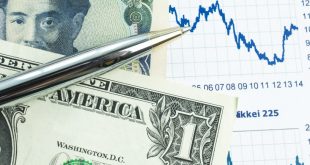The Chinese central bank eased a key monetary policy instrument on Friday, attempting to boost an economy facing hurdles from a slowdown in its largest export markets.
The People’s Bank of China announced a 25 basis point reduction in the reserve requirement ratio for major banks, which specifies how much of their total deposits banks must retain on reserve with the PBoC, to a weighted average of 7.6%. This is the lowest level since mid-2007.
The decision comes at a time when the economies of the United States and Europe are beginning to show symptoms of strain following a year of vigorous monetary tightening by their respective central banks. Financial conditions in the West are poised to tighten further, with the Federal Reserve and Bank of England following the European Central Bank in raising key interest rates at policy meetings next week.
According to the PBoC, it intends to “maintain a suitable quantity of money and credit,” keeping money supply growth roughly in line with nominal GDP growth. The government is aiming for 5% growth this year, but inflation, at 1.0% year to February, looks to be lower than in other major economies across the world.
The bank also said it aimed to “better support key areas and weak links.” It didn’t specify which sectors it was referring to, although the problems of its real estate sector, now in the third year of an ongoing credit crunch, are well documented.
Recent economic data have also showed the country’s external sector struggling as demand from the U.S. and Europe cools. Exports have been down in year-on-year terms for the last three months, and although February’s data were better than expected, imports were down over 10%, with imports of copper and steel products particularly weak. By the same token, industrial production was up only 2.4% in the first two months of the year, lagging expectations.
 Noor Trends News, Technical Analysis, Educational Tools and Recommendations
Noor Trends News, Technical Analysis, Educational Tools and Recommendations





